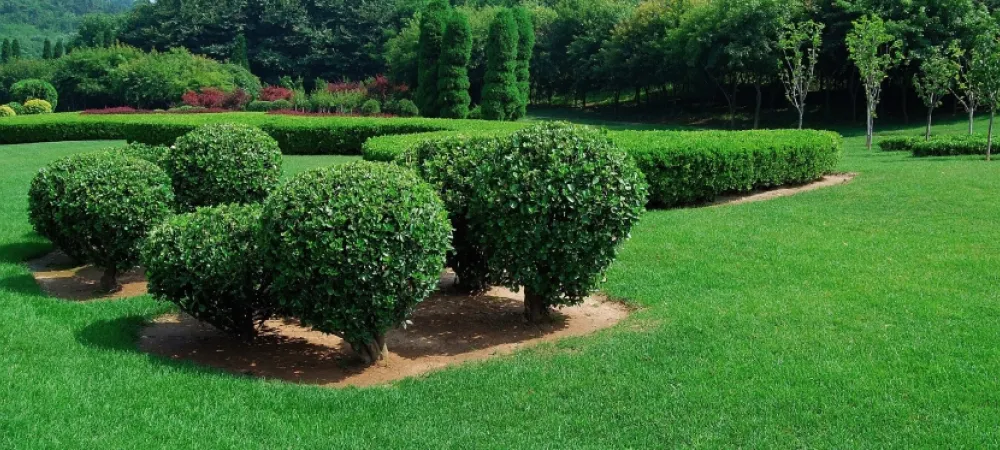How to Protect Your Trees and Landscape from Road Salt

Sodium chloride or road salt is applied to roadways, driveways, and sidewalks in Tennessee to melt the ice and snow and improve the safety of motorists and pedestrians. The salt dissolves in water to create a brine that has a freezing point lower than water. As the brine melts the ice it helps to prevent more ice from forming on surfaces as temperatures drop. Although road salts work well on roads they can cause injury, decline, and even death to your plants.
Salt Damages Plants
Plants that sit near roads can become damaged by salt when it is sprayed on them by cars and snowplows. Slat spray can cause burns on leaves and buds which can kill them. Signs of salt damage include branch dieback, bud death, and needle or leaf browning on the side of the plant facing the road. You won’t notice damage to deciduous plants until the spring when it begins to grow again.
Salt spray isn’t the only threat to your plants. Plants are also affected by dissolved salts in runoff water. High concentrations of salt can displace the nutrients in your soil which can lead to a decline in your plants. The chloride can be absorbed by the plant and interfere with photosynthesis and chlorophyll production. Chloride accumulation can reach toxic levels, causing leaf burn and die-back.
Salt can also damage our lawns when salt and snow are plowed or shoveled onto our grass and garden beds. Salt is good at absorbing water. This results in the ground drying out and depriving your flowers and plants of water.
Common Symptoms of Salt Injury
- Browning or discoloration of foliage
- Bud damage or death
- Damage on the side facing a road
- Early leaf drop
- Fewer or smaller leaves than normal
- Flower and fruit smaller
- Needle or leaf burn
- Nutrient deficiencies
- Reduced plant vitality
- Branch dieback
- Wilting in summer
How to Protect Your Plants From Salt
As we mentioned above, salt damages your plants when it is thrown on them by plows and other vehicles. While there isn’t much you can do about that, you can protect your plants by following these strategies.
Put Down a Tarp: Place plastic sheets or burlap around the base of your plants so that it covers the root zone. Remove the barrier in the spring and rake the area to get rid of any stray salt and loosen the soil.
Water the Area
When the snow melts in the spring, the salt in the snow will seep into the soil. To help dilute this, water your plants for a few hours with a hose or a sprinkler for at least three days. This will wash away any salt that has leached into the soil.
Designated Snow Pile
Whether you plow your own driveway or have someone else do it for you, it’s a good idea to designate a snow pile area. This lets you control where salt will be concentrated, making your cleanup job in the spring a lot easier.
Keep Your Tennessee Lawns Healthy With Services From 4EverGreen
No matter what steps you take to protect your yard there will always be something that needs fixing. The pros at 4EverGreen can get it all done for you in a fraction of the time. We have years of experience turning drab lawns into beautiful lawns.
Our lawn care team in Jackson, TN offers weed control and fertilization packages as well as aeration and overseeding services to enhance the health and look of your yard and get it ready for spring.
